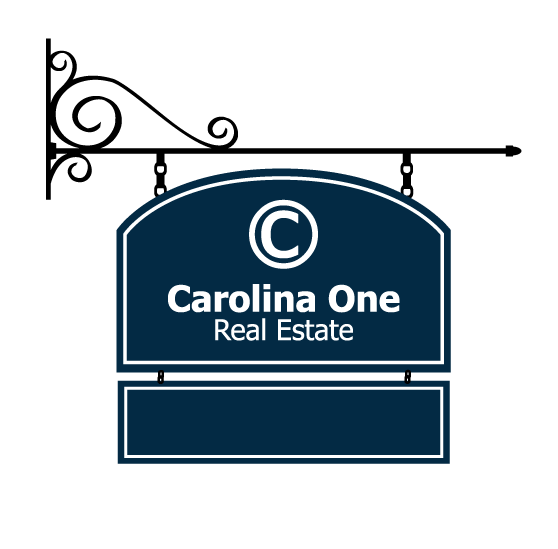8 Signs You’re Not Ready to Buy a Home
Posted by Lee and Katherine Keadle on Friday, February 17th, 2017 at 10:02am.

Although there are numerous financial and personal benefits of buying a home, ownership is not for everyone. And it’s better to have this realization before you make an offer on a home than after. There are steep penalties for biting off more than you can chew such as losing your earnest money and even defaulting on your mortgage (and damaging your credit for many years to come). If you’re wavering on whether or not to buy, pay attention to these signs below that indicate you should hold off on a home purchase.
Your Monthly Income is Unpredictable
For salaried workers who can rely on steady paychecks each month, financing a home is pretty straightforward. Whether you’re budgeting monthly expenses or getting approved through a lender, the numbers are easy to calculate because they’re consistent. However, if you’re self employed or earn a commission based income, taking on a mortgage can feel more like a burden. Plus, your lender will require extra paperwork such as profit and loss statements and more tax returns. The bottom line is that if you don’t feel confident that you can pay your mortgage every month and maintain a reserve safety cushion in your bank account, you should probably wait to buy a home until you have more money in the accounts.
Maintaining a Home Makes You Feel Overwhelmed
Although your Realtor can give you contacts for electricians, plumbers, and other contractors, you’ll still need to oversee and pay for any repairs that need to be made to your new home. If this cost and responsibility is overwhelming for you, you might reconsider the renting route. You can also talk with your Realtor about getting a home warranty that can help cover some of the big ticket items in your home like the heating and air unit, water heater, fridge, and other systems. (New construction is also a conversation worth having, since these homes require less maintenance and are usually covered under builder warranties.)
You Have Substantial Debt
No matter how badly you want to buy a home, if your debt to income ratio is 36% or higher, you probably won’t qualify for a loan. Talk with a trusted lender to assess your financial situation (see the Credit Score section below). If you’re willing to change your spending habits in order to purchase a home, you can make it happen!
There’s Not Enough in Savings
Depending on the type of loan your qualify for, you’ll have to make a substantial down payment at closing. FHA loans require 3.5% of the purchase price, while conventional requires 5%. You’ll also need to pay closing costs which usually come to about 3% of the purchase price. If you’re not comfortable parting with this amount of money on closing day, you might simply need more time in order to beef up your savings account. You don’t want to feel cash poor after your closing or stress out about not having enough money to pay for unexpected costs such as emergency medical bills.
You Don’t Want to Feel Tied Down
If your lifestyle involves long stints of traveling, or if you’re still in school, or if you’re simply not ready to stay in one place for 3 to 5 years, you should strongly consider leasing. It normally takes 3 to 5 years to recoup the costs of purchasing a home, which is why this time frame is so important. Also, some folks would rather spend money on vacations, cars, or hobbies. They don’t want to feel financially obligated to a mortgage, so renting gives them the freedom to maintain their current lifestyle.
You Recently Changed Careers
Most lenders want to see a 2 year job history. If you’ve switched employers but are still in the same type of job/industry, you still might be able to get approved for a loan if you have good credit. However, if you’ve totally changed careers or have become self employed in the past 2 years, you’ll need to talk with your lender to see if you need to postpone your purchase.
Your Credit Score is Low
Only 2 things can help a low credit score. First, get a recommendation for a trusted mortgage lender with experience in repairing credit. The reason I recommend a lender is because there are so many companies out there who claim to help people improve their credit - yet they string their customers along while collecting a monthly payment. A good lender will be able to pull your credit report and advise you what changes you’ll need to make in order to qualify for a home. He might recommend correcting errors on your report or paying off certain credit cards. After you’ve done what he advises, the only thing left to do is wait. After the time frame that he recommends, he can pull your credit to see the impact these changes have made on your score.
Your Time Frame is Unclear
If you know that you might have to relocate for your job or other obligations within the next 3 to 5 years, then you probably shouldn’t commit to buying. The reason is that if you have to sell within this time period, your equity will probably not cover your expenses (meaning you’ll lose money).
Looking for a Trustworthy Realtor or Lender?
If you’re considering a real estate purchase in the tri-county Charleston area, we’d love to help! We can put you in touch with our in house lender and also recommend trusted attorneys, insurance agents, contractors, and more. Contact The Keadle Group to get started!


